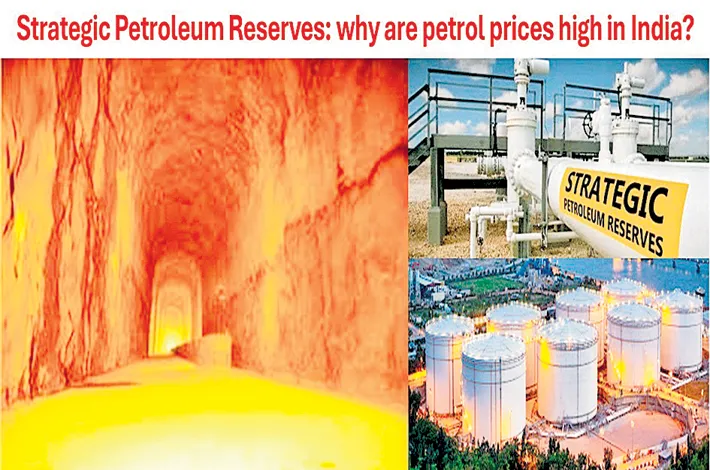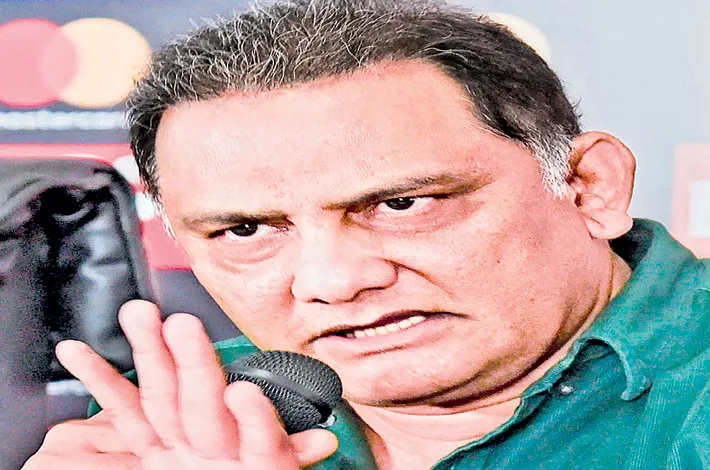Strategic Petroleum Reserves: Why are the petrol prices high in India?
26-07-2025 12:00:00 AM

Petrol prices have long been a focal point of public and media attention in India. Between 2004 and 2025, crude oil prices rose by 49%, from Rs 47 to Rs 70 per barrel, while the exchange rate increased by 91% (Rs 45 to Rs 86 per US dollar). However, the retail price of petrol surged by 206%, from Rs 36 in 2004 to Rs 110 in 2025. This disproportionate rise is mainly due to increased fuel taxes, which were imposed to offset past subsidies. These taxes, levied as fixed amounts, now contribute Rs 2.6 trillion about 10% of the government’s total tax revenue.
Fuel taxation has become a stable revenue source for the government, making any reduction likely to result in taxes being shifted to other sectors. India remains heavily dependent on imported fuel, managed through both commercial and strategic petroleum reserves (SPR). Commercial reserves are managed by public and private companies like IOCL and Reliance, while SPRs are overseen by the government’s Indian Strategic Petroleum Reserves Limited (ISPRL), which stores oil in underground caverns for emergencies.
India’s SPR capacity currently covers only 9.5 days of consumption, falling short of the 90-day recommendation by the International Energy Agency (IEA). In comparison, countries like the US, China, and Japan maintain larger reserves, saving billions by purchasing oil during price dips. India imports about 235 Million Metric Tonnes (MMT) annually, costing around Rs 150 billion. Expanding SPR capacity could help save Rs 10 to 15 billion annually.
Currently, India has 1.33 MMT in Visakhapatnam, 1.5 MMT in Mangaluru, and 2.5 MMT in Padur, with a planned expansion of 6.5 MMT. Due to funding limitations, the government is encouraging public-private partnerships (PPP). If these projects proceed without delay and excess fuel taxes are reduced, petrol prices could potentially fall by 15% through storage gains, or even up to 50% with tax adjustments.
— Dr. Kishore Nuthalapati, Economist








